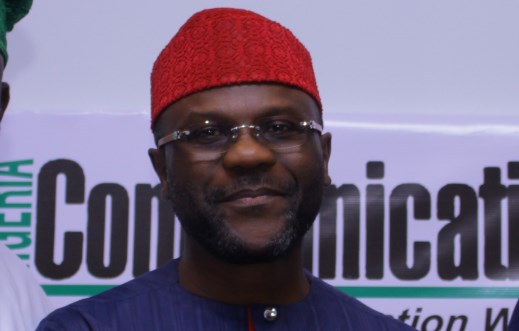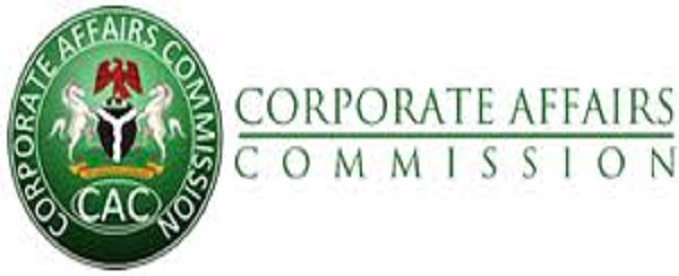News
Systemspecs Trains Students to Become Globally Competitive at Remita Summer Coding Camp

Determined to improve the country’s education and engage young Nigerians to become globally competitive through the facilitation of capacity building and technology transfer boot camp, SystemSpecs, leading software company in Nigeria has pulled secondary school students together in a-two week intensive coding sessions in Lagos and Abuja.
Tagged Remita Summer Coding Camp, the two-week summer camp, according to SystemSpecs Corporate Social Responsibility programme coordinator, Akor Akpenyi, will build the capacity of the students to become globally competitive via coding and other technology programmes, which in many ways will provide solutions to Nigeria’s perennial challenges.
Akpenyi further explained that the coding camp is not a one-off platform, but a five-to ten-year plan that will help to drive national growth and development, especially in education.
“Today, we are engaging the secondary school students. Tomorrow, we may decide to engage the university students in order to build capacity and transfer knowledge through the application of technology in respect to artificial intelligence, machine learning and the Internet of Things, animation, building games, 3D printing along with some other interesting training”, she said.
According to her, “the knowledge gained from the training exercise would later transform to become major vocations that the students would lean-on to become value-adding professionals in the next couple of years. Our intention is to develop the ability of these students for the nation”, she said.
One of the parents who accompanied one of the participating students, Aishat Lawal at the summer camp, Olajide Lawal, told the media that he purposely brought her 12-year old daughter who is in JSS3 at the Federal Government College, Ibillo, Edo State, to the camp to learn how to write a line of code.
Lawal said that he had to register her ward when he learnt about the opportunities available to students who are digitally-inclined in this present digital age.
“I see a lot of opportunities that are lacking in my local government and brought Aishat here to build her capacity in addition to what she is being taught in Federal Government College”, Lawal said.
Lawal who brought her daughter from Ifelodun Local Government to Lekki, venue of the coding camp said he was satisfied with the high level of facilitators who administer the coding classes.
“Aishat told me that they were taught how to build animation, games, 3D printing and many other things. I know that after the two weeks, she would have learnt a lot of things”, Lawal explained.
However, the Executive Director, SystemSpecs, Deremi Atanda who was at the camp to raise the morale of the students said SystemSpecs is building the capacity of the students on how to discover the reason why they are in school.
“We are complementing what the government is doing. If one of the fundamental responsibilities of the government is being challenged, we cannot complain. We must look at what we can do to complement the government’s efforts. That’s education on a general level.
“At SystemSpecs, we are more interested in national competitiveness that rides on the back of the knowledge economy and knowledge economy thrives on the back of effective technology skills. That is what is driving our involvement in the summer camp, which is not a short-term plan but a long term plan. This is how SystemSpecs is contributing to national development, particularly in the area of education.
“It’s time for us to start planning for long-term development as a nation where young people can build capacity and skills to support local businesses. It may be too late to get the attention of students who are already in tertiary institutions because their minds are already made”, he advised.
In his words, Atanda said catching the secondary students young would make them be more “productive to serve in the local economy much earlier and become globally competitive”.
News
CAC Announces Upward Review of Service Fees

Corporate Affairs Commission (CAC) has announced an upward review of its service fees, which will take effect from August 1, 2025.

The announcement was made through the commission’s official social media page on Tuesday, June 17, 2025.
According to the CAC, the fee adjustment was necessary due to the current economic conditions, rising operational costs, and input from key stakeholders.
The statement read, “The Commission wishes to inform the General Public, Esteemed Customers, and all Stakeholders that in the continued efforts to improve its service quality and delivery, it has become necessary to review certain service fees effective the 1st day of August 2025.”
The commission explained that the fee changes are part of efforts to deliver better and more digitalised services while maintaining the integrity of Nigeria’s corporate registry.
The revised fee structure will affect services related to companies, business names, limited partnerships, and incorporated trustees.
Key fee changes announced by the Corporate Affairs Commission (CAC) include adjustments across various service categories.
For voluntary striking-off, the fee is now ₦50,000 for small companies and ₦100,000 for public companies, up from the previous ₦25,000.
Relisting a company will cost ₦50,000 for LTD/GTE and ₦100,000 for public companies.
Due diligence through self-service is set at ₦50,000. Requests for extension of time to hold an annual general meeting will now cost ₦100,000 for public companies and ₦50,000 for others.
Historical search reports will range from ₦20,000 to ₦30,000 per request. A restriction of a director’s residential address now attracts a ₦25,000 fee, while obtaining a certified true copy of documents or extracts will cost ₦5,000 per copy.
For limited partnerships, both voluntary striking-off and relisting will cost ₦25,000. A letter of good standing will be ₦10,000, registration and certified copies of documents will be ₦30,000, and a change of name will attract a ₦10,000 fee.
Regarding business names, voluntary striking-off is now ₦10,000, relisting ₦25,000, and an application for cessation ₦10,000. The certified true copy of documents will cost ₦5,000 each, and restriction of a proprietor’s address will also be ₦25,000.
Name reservations remain at ₦1,000, while reserved names with restricted words still cost ₦5,000.
The new fee structure is expected to impact business owners, lawyers, compliance officers, and others who interact with the corporate registry.
News
Global Travel Made Simple with Kaspersky eSIM Store

Kaspersky eSIM Store is a new connectivity solution for international travel. Designed to make it easier for leisure and business travellers to stay online globally, it empowers users with easy Internet access across 150+ countries and regions, with a choice of over 2,000 affordable data plans.

The production of eSIM-compatible devices has increased tenfold in the last five years according to the GSMA. By 2028, it is expected that half of all mobile connections worldwide will use eSIM technology.
This rise in popularity is driven by eSIM’s convenience and ease of use – eliminating the need for physical SIM cards and enabling a hassle-free experience wherever you go.
To meet this growing trend, Kaspersky eSIM Store provides access to eSIM plans from local telecom operators all over the world – with an easy interface and simple management.
A new way to always stay connected
Kaspersky eSIM Store lets users to enjoy affordable and easily accessible Internet connections around the globe without the hassle of physical SIM cards. Users can seamlessly access eSIM plans from local telecom providers in 150+ countries and regions worldwide, providing favourable rates and transparent conditions without any roaming fees.
While travelling, an eSIM can help users avoid high roaming costs on a primary SIM, remove the need to search for a local SIM kiosk and share personal data with them, as well as avoiding the use of unsecured public Wi-Fi networks.
Instead, eSIM ensures that leisure travellers can focus on the joyful moments of their trip and instantly share them with friends and relatives, while business travellers have continuous access to important messages, working documents and video calls.
Seamless connection in a few taps
Kaspersky eSIM Store features a user-friendly interface for plan selection, purchase, top-ups, and data usage management. Travellers can choose their preferred activation date, allowing them to set up their eSIM in advance and be connected the moment their trip begins — all in just a few taps.
To match the needs of any traveller, there are many flexible ways to choose and manage data plans.
Options are available based on destination, including plans for specific countries, global plan 122 destinations, or mini-global plans tailored to specific regions.
For trip duration, travellers can select between expiring plans valid for a fixed period or non-expiring plans that remain active until the data is fully used. This ensures convenience whether the trip is short or long.
Additionally, users have control over when their plan starts. They can either schedule activation for a specific date or begin using the data immediately, providing flexibility to align with their travel schedule.
To ensure users never run out of GB unexpectedly, Kaspersky eSIM Store provides real-time data usage monitoring and alerts when a balance is near zero. The user profile (on the webpage or in the app) allows quick top-ups and supports multiple countries on a single eSIM – install once and use for a lifetime.
Kaspersky eSIM Store is launched in partnership with award-winning provider BNESIM Limited, which has been delivering global eSIM services since 2017.
“At Kaspersky we are constantly keeping up with latest trends shaping our digital habits, and eSIM is definitely one of them. eSIM technology greatly simplifies travelling abroad, allowing people to stay connected and not worry about issues like roaming charges.
“We know from our own experience how important it is to stay in touch with your family or colleagues when you are on a trip, so we designed Kaspersky eSIM Store for all types of travellers to ensure instant access to eSIM data plans wherever they go, as well as to provide a safe and positive digital experience,” – Mikhail Gerber, Executive Vice President, Consumer Business, Kaspersky.
Kaspersky eSIM Store complements Kaspersky’s wide range of industry-recognised solutions, such as Kaspersky VPN Secure Connection and Kaspersky Premium. Together they cover all modern connectivity needs and enhance digital freedom – ensuring safe, worry-free connectivity across the world.
News
Rising Oil Prices: PENGASSAN Calls Out Marketers Over Fuel Hike

President of the Petroleum and Natural Gas Senior Staff Association of Nigeria (PENGASSAN), Festus Osifo, has criticised oil marketers for exploiting Nigerians through inflated fuel prices, insisting that petrol should sell between ₦700 and ₦750 per litre.

This comes after depots across Nigeria have increased the pump prices of Premium Motor Spirit (PMS) following a surge in global crude oil prices triggered by rising tensions in the Middle East. A parallel strike by tanker drivers along Lagos’ Lekki-Epe corridor has further compounded the situation.
Data from Petroleumprice.ng revealed that Dangote Petroleum Refinery raised its petrol price from ₦825 to ₦840 on Monday, while Rainoil increased its price from ₦850 to ₦900. Fynefield and Mainland adjusted their ex-depot prices to ₦930 and ₦920, respectively, marking increases of ₦51 and ₦63. Other reported prices included Sigmund at ₦920, Matrix Warri at ₦910, NIPCO at ₦895 (up from ₦827), and Aiteo at ₦840.
The rise in ex-depot prices suggests that petrol could approach ₦1,000 per litre in the coming days.
Clement Isong, Executive Secretary of the Major Energies Marketers Association of Nigeria (MEMAN), attributed the spike to rising crude prices. However, a depot operator who spoke anonymously said Monday’s halt in petrol loading—caused by tanker drivers’ protest over a ₦12,500 E-Call-Up fee—was a more immediate concern.
“If unresolved, this E-Call-Up issue could plunge the country into another fuel scarcity,” the operator warned.
Meanwhile, Nigeria’s crude grades—Bonny Light, Brass River, and Qua Iboe—climbed to $77 per barrel on Friday, continuing the upward trend into Monday due to Israel’s military actions against Iran. As of Monday, Bonny Light stood at $78.62 per barrel, according to Oilprice.com. These prices now exceed the Federal Government’s 2025 budget benchmark of $75, offering temporary fiscal relief but threatening domestic fuel stability.Music concert tickets
Energy experts caution that higher crude prices will raise the cost of refined products like petrol and diesel, due to the rising cost of feedstock.
On the E-Call-Up crisis, MEMAN’s Isong urged the Lagos State Government to engage stakeholders and resolve the issue quickly to prevent further disruptions. He echoed tanker drivers’ concerns that the ₦12,500 levy could spark additional fuel price hikes, noting that Nigerians are already under financial pressure.
At a press conference in Abuja, PENGASSAN President Festus Osifo claimed that the persistent shutdowns of Nigeria’s state-owned refineries are politically motivated rather than due to technical faults.
Despite over $2.5 billion invested in refinery rehabilitation, he lamented that facilities like the Port Harcourt Refinery remain largely unproductive. The facility is currently undergoing a 30-day maintenance shutdown and is expected back online next week.
“We are aware the Port Harcourt Refinery was recently shut for maintenance, but the deeper issue is that these refineries operate far below efficiency. Political interference, not just technical issues, has stalled their performance,” Osifo said.
He urged the Nigerian National Petroleum Company Limited (NNPCL) to revisit its refinery operations model and adopt long-standing recommendations from PENGASSAN, which has been advocating reforms for over 15 years.
On the disparity in fuel pricing, Osifo criticised the continued high cost of PMS despite falling global crude oil prices. “Crude has dropped from about $80 to between $62 and $65 per barrel, yet petrol still sells at ₦875 to ₦905 per litre nationwide,” he said.
He blamed the Nigerian Midstream and Downstream Petroleum Regulatory Authority (NMDPRA) for failing to enforce fair pricing under the deregulated market system.
“NMDPRA must not allow marketers to exploit Nigerians under the guise of deregulation,” Osifo stated. “Crude price and exchange rate account for nearly 80% of the final retail price. With current international benchmarks, petrol should retail between ₦700 and ₦750 per litre.”
He urged the agency to start publishing transparent pricing templates to prevent arbitrary pricing practices.
Osifo also expressed concern over worsening insecurity in Nigeria’s oil-producing regions, particularly along the waterways. He warned that this is prompting multinational oil companies to divest, despite cost-saving incentives recently introduced by the Federal Government.

 News3 days ago
News3 days agoWhy I am vying for AFRINIC board seat in 2025 election – Terry Edet

 Telecom2 days ago
Telecom2 days agoGSMA, Mobile Industry Call for Strengthened Action to Advance Child Online Protection in Africa

 E-Financial3 days ago
E-Financial3 days agoFidelity Bank ED, Kevin Ugwuoke takes over as President of Risk Managers Association

 Telecom3 days ago
Telecom3 days agoCrypto Exchange MEXC Rolls Out P2P Support for Naira, Birr, and Rupee

 News2 days ago
News2 days agoDigital Africa Global Consult, NDPC Partner on Ground-Breaking “Nigeria Data Challenge” Initiative

 Telecom21 hours ago
Telecom21 hours agoALTON Clarifies on Migration to End-User Billing for USSD Services

 General News2 days ago
General News2 days agoTD Africa, HP Strengthen Partnership to Advance Africa’s Tech Ecosystem

 General News3 days ago
General News3 days agoAirtel Concludes Nationwide Environment Week with Market Clean-Up by Employees



























